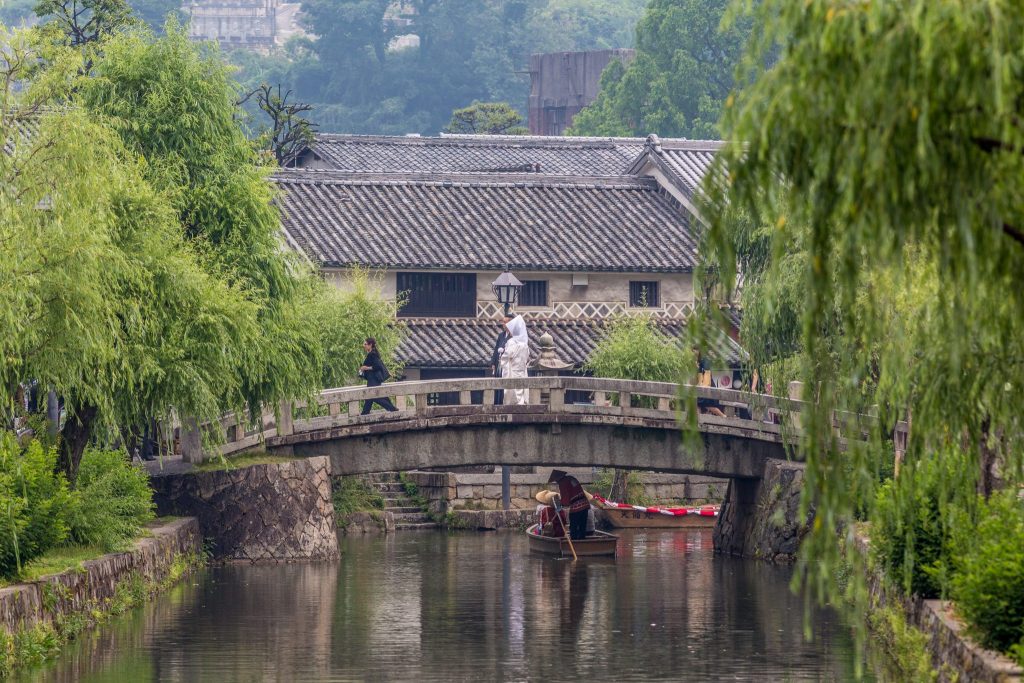Tourism's Healing Ways in Japan Show the Flip Side to the Travel Backlash

Skift Take
At a time of bigger tourism backlash, our report this week on how travel is saving Japan’s disappearing hamlets is a timely reminder of the power of this industry to do good.
Move aside overcrowding, climate change, unsustainable development, and other ills for which tourism has been accused of being the culprit.
Skift's Asia contributor Yixin Ng writes below about how tourism can save not only marginal villages in Japan but people's lives.
A developed Japan is seeing migration going the other way, meaning urban to rural, as overworked urbanites — sometimes to the point of death — long to return to their roots and live a less pressurized lifestyle. The rural areas need them as their population is dwindling and aging.
On the other side, the trend of tourists yearning for less crowded areas, local flavors, deeper immersions, and authenticity provides urbanites the key to go home, help revive abandoned places, and with it, preserve living cultures, traditions, lifestyles, and local knowledge and crafts.
Over in Australia, tourism is also a way to help areas devastated by the country's worst bushfires to recover. The government is on a $52 million drive to encourage its domestic travelers and international tourists to come help these communities and regions by holidaying down under.
"Tourism pollution" is real, but let’s not forget the industry's healing side, which can go way beyond providing jobs and enriching a country's coffers.
— Raini Hamdi, Skift Asia Editor, rh@skift.com, @RainiHamdi
Skift Stories and More Expert Insights
How Travel Is Saving Japan’s Disappearing Hamlets: Japan’s marginal villages could be living on borrowed time as populations dwindle, but tourism is bringing respite. Here's how.
Australia Pours $52 Million Into Tackling Tourism’s 'Biggest Challenge in Living Memory': A look at where the money will be spent shows Australia is putting it in all the right places with just one thing in mind: getting tourists back. This is what’s needed, as figures are showing massive losses.
A New Normal Emerges for Tourism Promotion in the Age of Climate Change: As extreme weather events disrupting tourism become more and more common, the way destinations respond feels less and less appropriate. A new normal is emerging — and it’s going to be tough.
What This Minor Vs. Marriott Lawsuit Reveals About the Hotel Biz: Minor is a step closer to getting its case against Marriott heard in a Thai court, probably a nightmarish scenario for hotel management companies if only because it bares open fault lines.
SiteMinder Gets Funding Boost as Financial Titan BlackRock Bets on Hotel Tech: To call a company the best-capitalized hotel tech startup might seem like pointing out the tallest leprechaun. But while Sydney-based SiteMinder serves only about 36,000 hotels out of a million worldwide, new funding from cash-rich investor BlackRock could fuel the hotel connectivity startup’s growth substantially.
How Global Event Planners Need to Think About China’s Secondary Cities: China has become a hot spot for global business travel, and its secondary cities are evolving to accommodate larger conferences and conventions. What should event planners know?
Hilton Launches New Brand Tempo Into a Crowded Lifestyle Space: Hilton has introduced its 18th brand. Tempo by Hilton is meant to be an affordable lifestyle brand for the modern traveler. But with so many lifestyle brands already out there, how will Tempo be able to stand out?
Travel Megatrends 2020: The Future of Travel Will Be Driven by Urban Living Innovations: Cities have always been incubators for innovation, but with two-thirds of the world’s population expected to live in urban areas by 2050, developments being rolled out today to accommodate that new density will serve the travel industry in positive ways.
Asia Editor Raini Hamdi [rh@skift.com] curates the Skift Asia Weekly newsletter. Skift emails the newsletter every Wednesday.





